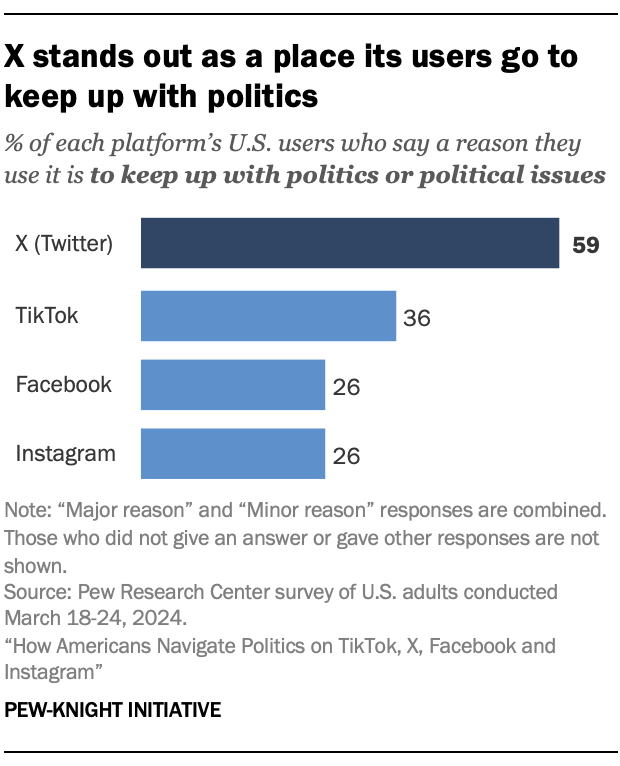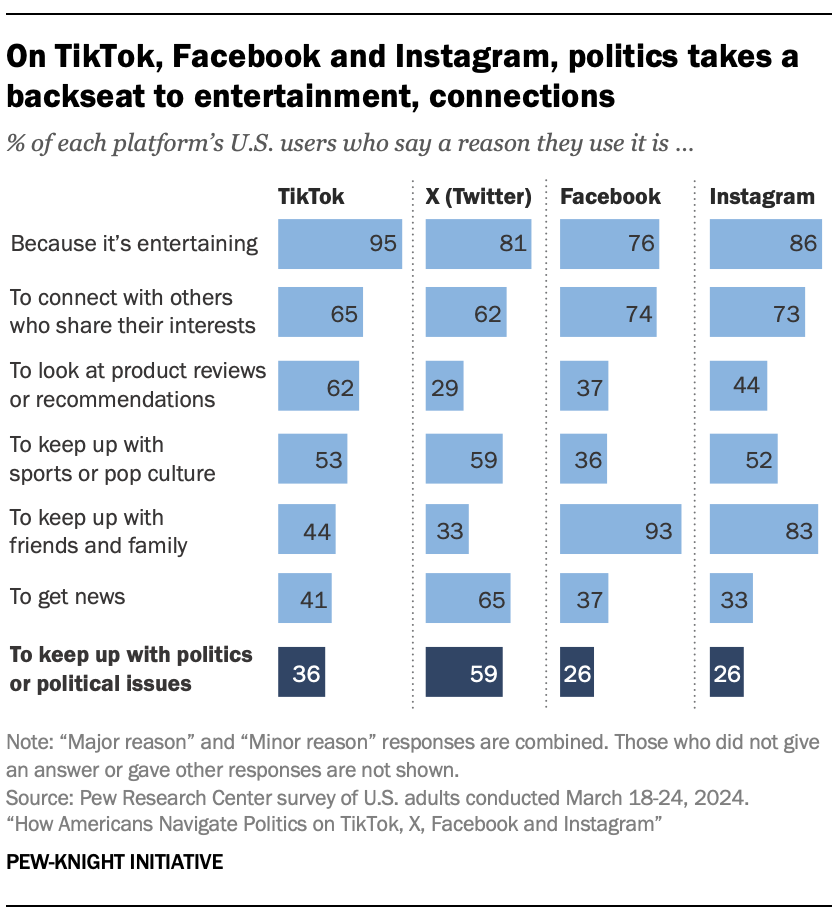Can TikTok Save the News Industry's Conversion Problem?
How news publishers can leverage TikTok's new full-funnel marketing tools to convert viral video viewers into paying subscribers and newsletter sign-ups.
Events this week have caused many people to flock to the internet and social media platforms for all things related to politics - whether that is receiving news or sharing their opinions.

The Republican National Convention kicked off Monday, July 15 – just a few days after the attempted assassination of former President Donald Trump at his rally in Butler, Pennsylvania. Additionally, the Democratic National Convention is right around the corner, scheduled to take place in Chicago in the middle of August.
With everything happening in politics right now and the next U.S. presidential election rapidly approaching, Americans are really getting worked up. Regardless of what side of politics people are on, the crazy events this week have caused many people to flock to the internet and social media platforms for all things related to politics - whether that is receiving news or sharing their opinions.
PEW Research Center just released a study on July 12 examining trends for Americans and how they use social media platforms like TikTok, X, Facebook, and Instagram, in relation to politics. Overall, the study found that people had different experiences depending on the platform they were using. For instance, X is the number one social media platform people use for politics, with nearly 60% of its users saying that keeping up with politics is a reason they use the platform. TikTok came in second place, with about 36% of users saying they use the platform for politics. Finally, Facebook and Instagram users only had about 26% of users on each site using the platform for political reasons.

More than half of X users say they also use the platform to get news and keep up with political issues. However, Republican-leaning and Democrat-leaning users have very different viewpoints on how the platform impacts democracy. These viewpoints have changed drastically since 2021. For example, data collected in 2021 showed that 17% of Republican-leaning users and 47% of Democrat-leaning users found the platform to be mostly good for democracy, while results from this showed that now 53% of Republican-leaning users and just 26% of Democrat-leaning users found it to be good for democracy. Democratic X users’ views are trending negative with now 39% of users having a negative view of the platform in relation to democracy.
Overall, the views of social media platforms’ impact on democracy have been mostly good. 38% of X users find the platform to be good overall, while the other 27% find it to be bad, and 34% find it to be neutral. Only 16% of Instagram followers and 17% of TikTok followers find their platforms to have a negative impact. Facebook was the only platform out of the four that had more users claiming the platform was bad for democracy rather than good, with 31% of users saying it had a negative effect and only 24% of users saying it had a good effect.
While politics certainly is a motivator for people to use social media, it certainly still isn’t the number one reason. 95% of TikTok users say they use the platform because it is entertaining. This is also the top reason X users say they use the platform, at 81%, and Instagram users, at 86%. However, there is one other huge motivator for Instagram and Facebook — keeping up with friends and family. 93% of Facebook users say this is a reason they still use the platform, and 83% of Instagram users say the same. Overall, entertainment is still the largest motivator for social media users as a whole.

There are many reasons users post about politics on social media. Some of the top reasons include the belief that politics belong there, trying to make a difference, feeling like it is their moral obligation, and feeling like their views are welcome there. The biggest reason for most users who post about politics - especially on X and TikTok - is because they feel like their views are accepted there and they get better feedback. On X, this is especially the case for Republican-leaning users. This is the opposite case for Facebook.
While many users do use social media for making political posts, there is also a large group of users that steer clear from doing so. Some of the top reasons for this are that they feel politics do not belong on the platform, they don’t care about politics, they feel like their posts won’t make a difference, and fear of being harassed or criticized. These reasons vary in frequency among users on different platforms. For example, more than half of those on TikTok say they do not care about politics, while the number one reason for Facebook users is that they do not post about politics because they don’t think those posts belong on the platform.
Overall, social media platforms play a big part in American political engagement. Each platform's culture and user demographics cause them to be used differently. For example, X and TikTok are significant for political use, while Facebook and Instagram focus more on personal connections with friends and family. Still, all four platforms are widely used for collecting new information and posting about politics.
As the next presidential election approaches, we could see even more changes in how users interact with social media platforms.